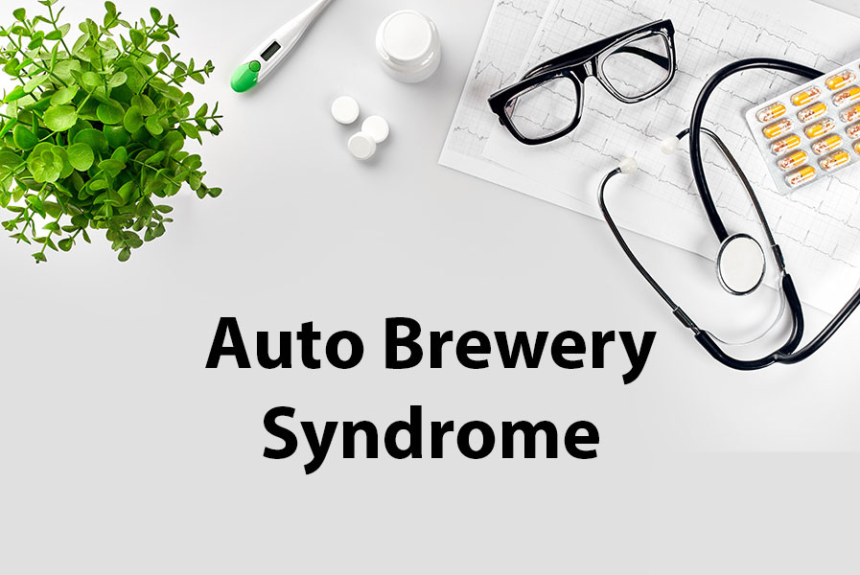Have you ever felt tipsy, foggy-headed, or even hungover — despite not drinking any alcohol? If so, you’re not alone, and there may be a surprising reason behind it. This strange phenomenon could be caused by a rare but real condition known as Auto-Brewery Syndrome (ABS).

What Is Auto-Brewery Syndrome?
Auto-Brewery Syndrome, sometimes called gut fermentation syndrome, occurs when certain microbes in your digestive tract begin fermenting carbohydrates and sugars into ethanol (alcohol) — right inside your body.
Yes, you read that correctly: your gut can literally turn into a microbrewery, producing alcohol that enters your bloodstream. People with ABS may experience symptoms similar to alcohol intoxication — such as dizziness, brain fog, fatigue, headaches, nausea, or even slurred speech — without consuming a single drop of alcohol.

How Does It Happen?
ABS is most often caused by an overgrowth of yeast or certain bacteria in the gastrointestinal tract. These microorganisms feed on the sugars and carbs you eat and convert them into alcohol.
Yeast strains that have been linked to ABS include:
- Saccharomyces boulardii
- Candida albicans
- Candida glabrata
- Candida kefyr
- Candida parapsilosis
- Saccharomyces cerevisiae (the same yeast used in beer brewing)

Additionally, some bacterial strains — including Klebsiella pneumoniae, Enterococcus faecalis, and Citrobacter freundii — have been reported in rare cases to contribute to the condition. One patient I worked with had spent years as a homebrew beer competition judge — a role that likely exposed him to many strains of yeast, some of which eventually colonized his digestive system. However, you don’t have to be a beer judge to develop this condition. Candida and other fermenting microbes are common in the environment and can take hold when gut health becomes imbalanced.
Why It’s Often Overlooked
Although ABS is still considered rare, it’s likely underdiagnosed. Many doctors are unfamiliar with the condition and may mistake the symptoms for anxiety, chronic fatigue, or even alcohol abuse.
Standard stool tests may detect these microbes, but the mere presence of yeast or bacteria doesn’t automatically mean you have Auto-Brewery Syndrome. For symptoms to occur, you need a significant overgrowth — and often the right (or wrong) strain.
Common Symptoms of Auto-Brewery Syndrome
Symptoms can vary, but some of the most reported signs include:
- Feeling intoxicated without drinking alcohol
- Brain fog or memory issues
- Fatigue or headaches
- Dizziness or lightheadedness
- Nausea or a hungover feeling
- Mood changes or depression
If these sound familiar — and especially if you’ve already ruled out alcohol, medications, or other conditions — it’s worth considering ABS as a potential root cause.
Is It Treatable?
Yes, Auto-Brewery Syndrome is treatable — but not always easy to manage alone.
A low-sugar, low-carb diet is often recommended, as sugar fuels yeast overgrowth. However, diet changes alone are rarely enough. You may need antifungal or antimicrobial treatments to truly rebalance your gut. It’s also crucial to identify the exact strain of yeast or bacteria at the root of your symptoms.
Be warned: Treatment can trigger a “die-off reaction” (also known as a Herxheimer reaction) — a temporary worsening of symptoms caused by toxins released when yeast or bacteria are killed off. This phase can be uncomfortable but is a sign the treatment is working.

Need Help?
If you’re experiencing unexplained symptoms that feel like intoxication or a perpetual hangover, it may be time to investigate further. Auto-Brewery Syndrome is real — and treatable with the right support.
At the Hello Doctor Today, we’ve helped thousands of patients across the U.S. and in more than 30 countries via telemedicine. If you’re ready to get to the root cause of your symptoms, we’re here to help.
👉 Contact us today to schedule a consultation and start your journey back to clarity, comfort, and control.






